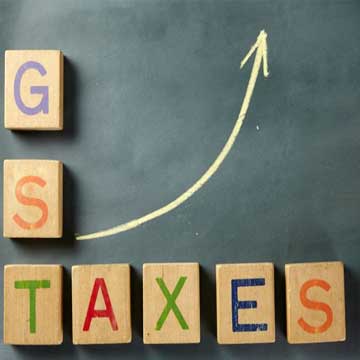 Chennai:
Chennai: The Goods and Services Tax (GST) system should first be implemented in select industries and service sectors to test it before rolling it out on a full scale across the nation, a top tax lawyer said.
"It is not known whether the software has been tested. In order to avoid chaos, the GST regime should be implemented in phases. It should be first implemented for select industries and then expanded further," Arvind P. Datar, a noted tax and corporate lawyer, said.
According to him, there should be an extensive trial run so that glitches could be sorted out.
Datar said it is not known whether the GST server can take the load as a huge number of returns will be filed on a single day across the nation by various business entities.
He said he has no issues with the GST if there is 'one nation, one tax rate' but adding up various rates and calling it GST is not actually GST.
Terming the GST in the current form a terrible thing waiting to happen to the country, Datar said: "The world over GST is VAT (value-Added Tax). But in India GST is not real GST."
He said State GST law in various states may or may not be uniform.
According to him, Article 246A of the Constitution permits states to levy taxes on goods and services, and hence there is nothing to prevent the states from levying additional GST.
Citing the example of Singapore, Datar said, a flat seven per cent rate is charged on all products.
Datar said uniform lower tax rate would actually widen the tax base as it will be a disincentive for evasion. On the other hand, a high rate will incentivise evasion.
"Bill-less purchase of goods and availing of services will continue to happen under the proposed GST system," he added.
He said the proposed GST system will increase the number of returns that a businessman has to file from two to 49.
A service provider, say a diagnostic centre, now has to file two service tax returns per year. But under the GST, he has to file three returns on the 10th, 15th and 20th of every month -- that is 36 returns per year.
In addition, the diagnostic centre has to file 12 tax deducted at source (TDS) returns and one annual return.
From two returns per year, the service provider has to submit 49 returns -- all online. The load on the system will be high as returns will have to be filed on the same day, Datar said.
Further, the Rs 20 lakh threshold for GST will result in mushrooming out-business entities to avoid tax and our country is not suited for national GST, Datar argued.
Datar said the existing system is good and the problem is in its implementation.
According to him, several consultancy firms and professional organisations are gearing up to make money out of consulting on GST.
He said the way the GST law has been drafted shows that the industry or the professionals like the lawyers were not consulted.
Terming tax revenue a by-product of economic growth, Datar wondered how people could say that the implementation of GST would increase the gross domestic product (GDP) by two per cent.
"The Indian tax system is highly complex and toxic. The tax administration is aggressive and unfriendly as it is target-based. There should not be target for tax collection," Datar said.
He reiterated that taxes are a by-product of economic growth.
The tax laywer said that while many other central government departments have turned people-friendly, the taxation department, owing to its target-based functioning, has not changed to being people-friendly.
Investors are bothered about the tax laws and how the provisions would be interpreted by the tax officials.
"While our words are Make in India, our taxes say Quit India," he remarked.
The tax lawyer said the government indulges in the practice of amending the law if there is a judgement in favour of an assessee.
"Seventy-seven per cent cases of the IT department are eventually held against the department. Most of the demands are raised knowing they are not sustainable. But the department raises the demand so that the assessee has to fight it out in the courts," Datar said.
 Chennai: The Goods and Services Tax (GST) system should first be implemented in select industries and service sectors to test it before rolling it out on a full scale across the nation, a top tax lawyer said.
Chennai: The Goods and Services Tax (GST) system should first be implemented in select industries and service sectors to test it before rolling it out on a full scale across the nation, a top tax lawyer said.